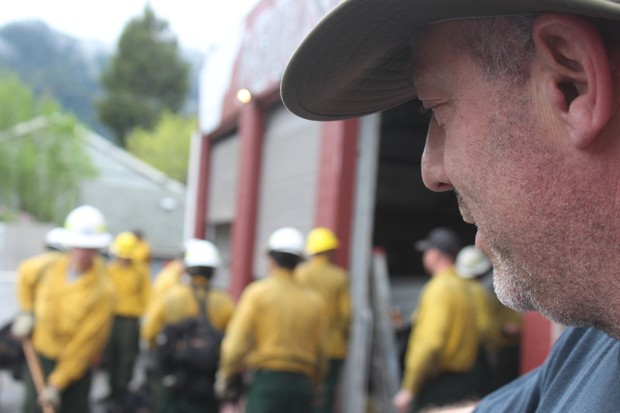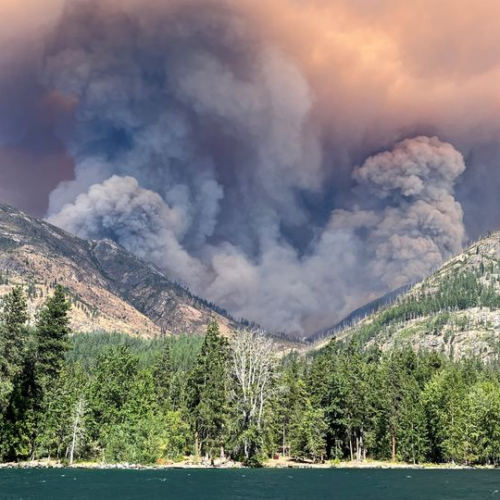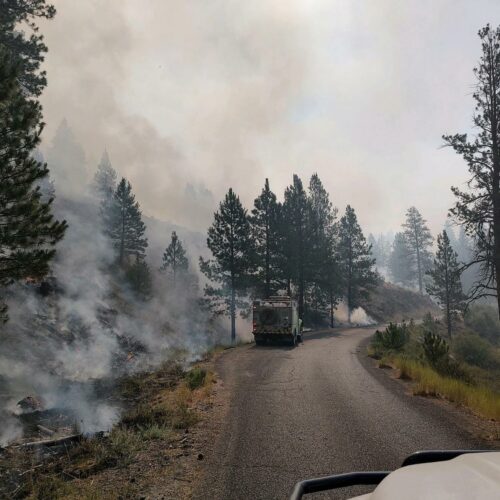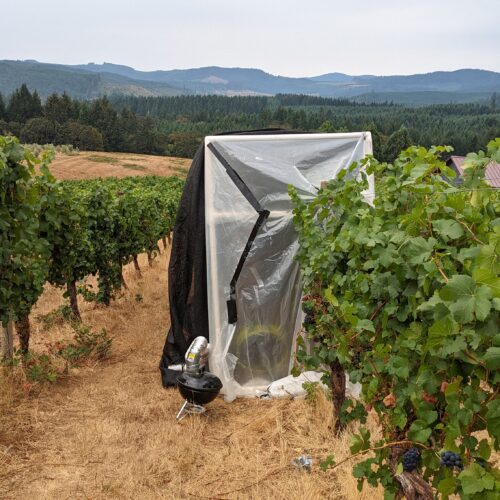
Shutdown Cancels Federally Funded Wildfire Training As Northwest States Scramble To Prepare For Season
Read On
From aviation contracts to deals with vendors and even seasonal hiring, the partial federal government shutdown is cutting into planning and preparation for the 2019 wildfire season in the Northwest.
According to Washington Public Lands Commissioner Hilary Franz, one training for firefighting managers has already been cancelled, because the federal government has been partially shuttered.
“We rely significantly on state funding for resources,” Franz said. “But we also rely on federal funding, not only on funding to support our own firefighting efforts, but also, we fight our fires in lockstep partnership with federal agencies.”
That’s because almost one-third of the land in Washington is owned and managed by the federal government. In Oregon, it’s more than half.
Citing preparations for the upcoming wildfire season, three U.S. senators from the Northwest are among nearly a dozen who sent a letter to President Donald Trump urging him to “cease the ongoing government shutdown.”
According to the letter, “… federal firefighting agencies like the U.S. Forest Service and the U.S, Bureau of Land Management use the winter months to train existing firefighters, hire seasonal firefighters for the upcoming season, and issue contracts for equipment critical to responding to fires.”
A spokesperson at the National Interagency Coordination Center in Boise is currently on furlough and was not available to comment.
Franz said the state doesn’t have a ‘Plan B’ for managing and fighting wildland fire if the government remains shuttered through the fire season.
“We’ll be watching it, and we will probably be looking to identify ways our state can step in,” she said. “We will also be relying on our existing systems that are in place, the challenge is that most of our systems were not built for government to shut down.”
Training Affected
A national wildland fire training course scheduled next week in Redmond, Oregon has been cancelled.
The training on suppression skills was meant for Incident Management Team commanders and general staff. It was to be offered by the Pacific Northwest Training Center, a federally funded entity. It would have drawn students mostly from Oregon and Washington, but also from across the U.S.
On Thursday, Franz plans to unveil Washington’s new 10-year strategic plan for dealing with wildfire. The plan outlines a new partnership between state and federal agencies.
“So, it is a joint agency strategic plan that we are launching,” she said. “We will be discussing as part of that conversation the context of how critical our federal agencies are in partnerships, and how we are going to be looking to take steps for the impacts of this government shutdown as we go into fire season.”

Washington deals with peak fire season conditions, state agencies ready to respond
Everyone watching fires around Washington this week held their breath as about 600 lightning strikes hit the landscape across the state.
The Washington State Department of Natural Resources, who, alongside agency partners, prepared for those conditions this week by pulling in out-of-state resources and pre-positioning crews. The lightning strikes ignited at least two fires in the state, the Easy fire and Swawilla fire. According to a public information officer on the Swawilla fire, a series of fires started from lightning strikes on the Colville Reservation this week.

Around the Northwest, hot, dry, windy weather fuels fires
Dry, hot and windy conditions have communities on alert for wildfire danger across the Pacific Northwest. Those conditions propelled fire growth over the weekend, and more of the same weather is expected this week.

Oregon researchers hope to provide new tools to help wine growers address climate change, smoke
Pinot noir grapes at Oregon State University’s Woodhall Vineyard undergoing smoke experiments. (Credit: Sean Nealon / OSU) Listen (Runtime :54) Read Researchers are developing special coatings to protect Northwest wines















